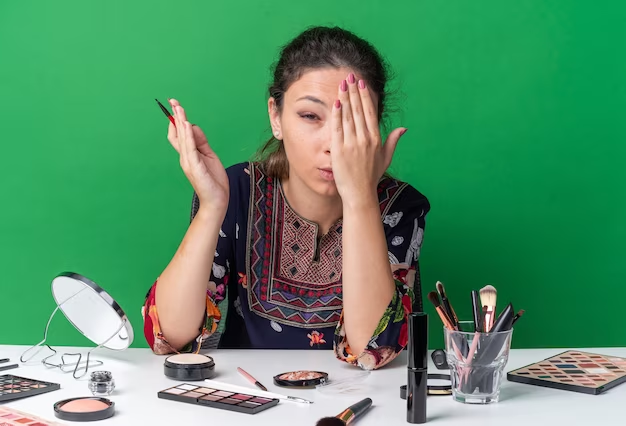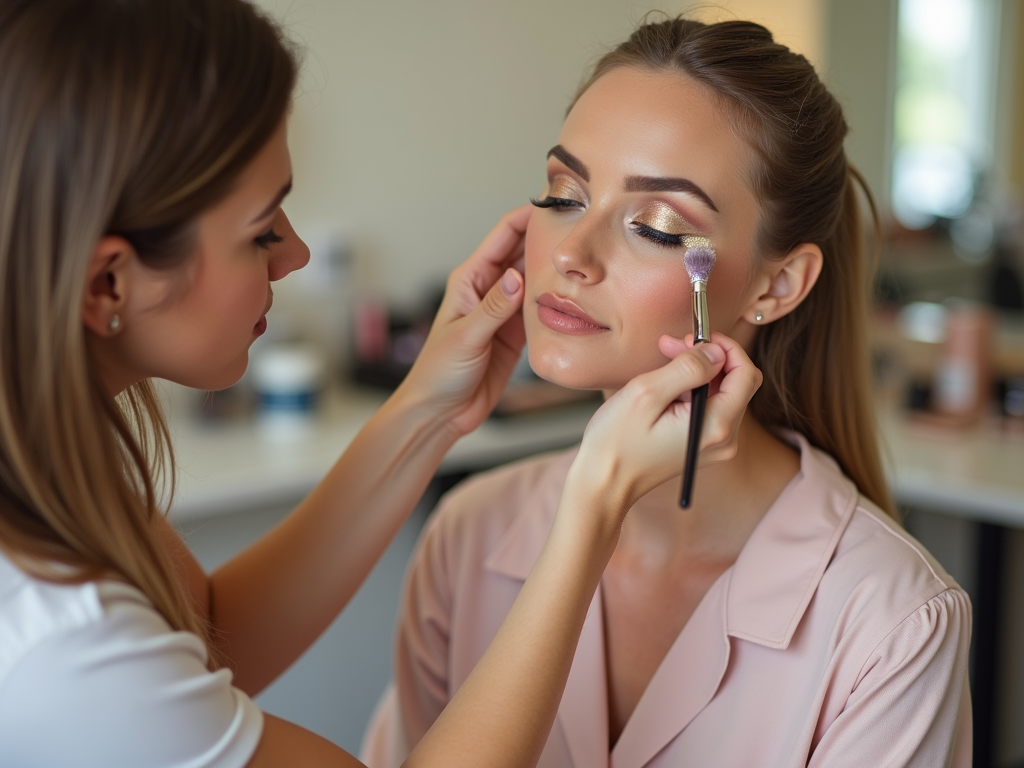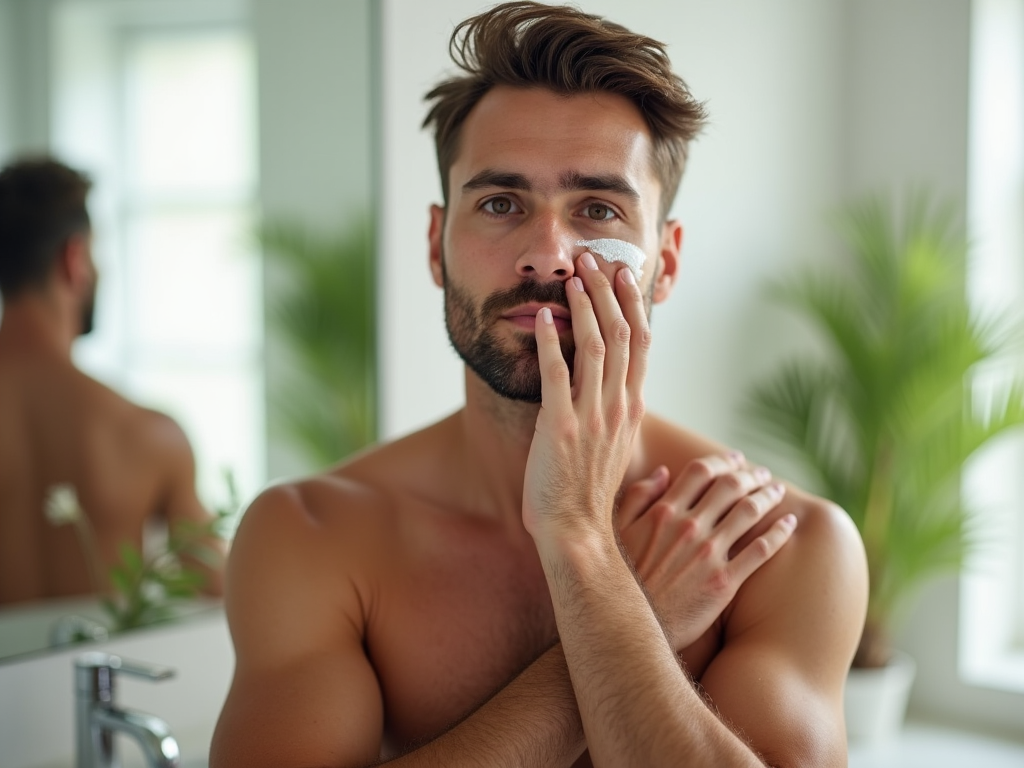Experiencing eyebrow hair loss when you rub them, leading one to wonder, “Why do my eyebrows fall out easily?”, can be both alarming and puzzling. The main reason for this occurrence often lies in the delicate nature of eyebrow hairs and the various factors that can weaken them, making them prone to falling out. Excessive grooming, harsh products, and heat damage are common contributors. Opting for gentler tools, like a solar hair dryer, can help reduce exposure to damaging heat while also being an eco-friendly choice. This article delves deep into the reasons behind eyebrow hair loss from rubbing, encompassing everything from the natural growth cycle of eyebrow hairs to the impact of external factors such as grooming habits, health conditions, and nutritional deficiencies. By understanding these underlying causes, we aim to offer insights and solutions to help you maintain healthy, robust eyebrows.
Understanding Eyebrow Hair Loss
The Basics of Eyebrow Anatomy
Eyebrow hairs have a unique growth cycle that includes phases of growth (anagen), transition (catagen), and rest (telogen). Unlike scalp hair, eyebrow hairs have a shorter anagen phase, lasting only a few months, which means they don’t grow as long before they shed and renew. This natural cycle prompts questions like, “How much eyebrow hair loss is normal?” Understanding that some hair loss is normal, but excessive loss when rubbing may indicate that the hairs are being prematurely pushed into the shedding phase or are weakened.
Common Causes of Eyebrow Hair Loss
Various factors can contribute to eyebrow hair loss, ranging from the mechanical stress of rubbing to more systemic issues, leading to concerns like “why are my eyebrows falling out and not growing back?”. These include:
- Alopecia Areata: An autoimmune condition that causes hair loss on the scalp, face, and sometimes eyebrows.
- Dermatitis: Skin conditions like eczema or psoriasis can affect the eyebrow area, leading to hair loss.
Moreover, habits such as frequent eyebrow grooming, plucking, or waxing can weaken hair follicles over time, making them more susceptible to falling out with minimal provocation, and causing one to wonder, “Why are my eyebrows easy to pull out?”.

Factors Contributing to Eyebrow Hair Falling Out
Physical Damage and Over-Grooming
The physical action of rubbing can cause direct damage to the hair follicles, especially if done frequently or with too much force, making the eyebrows fall out easily. Over-grooming practices such as plucking, threading, or waxing can also make the eyebrows more vulnerable. This repeated trauma can weaken the follicles, reduce hair density, and lead to noticeable hair loss when the area is touched or rubbed, exacerbating concerns about why eyebrows are easy to pull out.
Underlying Health Conditions
Several health issues can manifest as hair loss in the eyebrows, prompting questions about why eyebrows are falling out and not growing back. Thyroid disorders, for example, can disrupt the hair growth cycle, leading to thinning hair across the body, including the eyebrows. Hormonal imbalances, autoimmune diseases like alopecia areata, and even stress can significantly impact hair health.
Nutritional Deficiencies
Nutrition plays a crucial role in hair health, with deficiencies in vitamins and minerals like iron, zinc, vitamin D, and B vitamins potentially leading to hair loss. A lack of these essential nutrients can weaken hair follicles, making them more prone to shedding and contributing to concerns about how much eyebrow hair loss is normal.
| Factor | How It Contributes to Eyebrow Hair Loss |
|---|---|
| Physical Damage | Direct trauma from rubbing or grooming weakens follicles |
| Health Conditions | Disorders disrupt the natural growth cycle, leading to loss |
| Nutritional Deficiencies | Lack of essential nutrients weakens hair, causing it to fall out |
How to Prevent Eyebrow Hair Loss
Proper Eyebrow Care
Maintaining the health of your eyebrows is crucial to preventing unnecessary hair loss. This involves adopting a gentle approach to eyebrow care, avoiding excessive plucking, waxing, or rubbing that can stress the hair follicles. Incorporating a nourishing eyebrow serum or oil into your daily routine can strengthen the hairs and follicles, promoting healthier growth. Additionally, being mindful of skin conditions and treating them promptly can prevent issues that lead to hair loss. It’s also advisable to minimize the use of harsh makeup products that can contribute to weakening the hair.
Seeking Medical Advice
If you notice significant eyebrow hair loss, especially if it’s sudden or patchy, it might be time to consult a dermatologist or healthcare provider. They can help identify any underlying health conditions contributing to the hair loss, such as thyroid issues, nutritional deficiencies, or autoimmune diseases. Early detection and treatment of these conditions can not only help manage eyebrow hair loss but also address other health concerns.

Treatments and Solutions for Eyebrow Hair Loss
Over-the-Counter Solutions
For those wondering “how to address eyebrow hair loss,” there are several over-the-counter products designed to promote hair growth. These include:
- Eyebrow growth serums that contain peptides and vitamins to nourish and strengthen the hair follicles.
- Biotin supplements, which can support overall hair health and potentially encourage eyebrow regrowth.
While these solutions can be effective, it’s important to have realistic expectations and understand that results can vary based on the individual’s condition and the cause of the hair loss.
Professional Treatments
In more severe cases where over-the-counter solutions are not effective, professional treatments might be necessary. These can include:
- Prescription medications: Some medications, like minoxidil (Rogaine), can be prescribed off-label to stimulate hair growth in the eyebrows.
- Hair transplantation: A more invasive option, hair transplantation involves relocating hair from another part of the body to the eyebrow area.
Consulting with a healthcare professional can help determine the most appropriate treatment based on the specific cause and severity of your eyebrow hair loss.
Conclusion
Eyebrow hair loss, particularly when it occurs from rubbing or other seemingly minor actions, can be a source of concern and frustration. Understanding the various factors that contribute to this issue, from physical damage and over-grooming to underlying health conditions and nutritional deficiencies, is essential for addressing the problem effectively. By taking steps to care for your eyebrows properly and seeking medical advice when necessary, you can work towards maintaining healthy, full eyebrows.

FAQs
Why do my eyebrows fall out easily?
Eyebrow hair can fall out easily due to a combination of factors such as physical damage from rubbing or grooming, underlying health conditions, and nutritional deficiencies. Taking proper care of your eyebrows and addressing any health issues can help mitigate this problem.
Why are my eyebrows easy to pull out?
Eyebrows may be easy to pull out if the hair follicles are weakened by over-grooming, harsh skincare products, or health conditions that affect hair strength. Gentle care and avoiding excessive plucking or waxing can help preserve eyebrow hair.
How much eyebrow hair loss is normal?
It’s normal to lose a few eyebrow hairs daily as part of the natural hair growth cycle. However, noticeable thinning or patchiness may indicate an underlying issue that needs attention.
Why are my eyebrows falling out and not growing back?
Persistent eyebrow hair loss without regrowth can be due to chronic physical damage, long-term health conditions, or severe nutritional deficiencies. Consulting with a healthcare professional can help identify and treat the underlying cause.
How can I prevent eyebrow hair from falling out?
Preventing eyebrow hair loss involves minimizing physical damage by reducing over-grooming, using nourishing eyebrow products, maintaining a balanced diet to avoid nutritional deficiencies, and treating any underlying health conditions that may contribute to hair loss.



